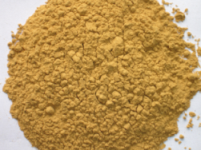CordiZym contains an “adaptogenic” mixture of fermented herbal compounds including cordyceps extracts and rosmarinic acid in a synergistic proprietary formula designed to promote anti-cancer effects. Cordyceps includes the fungus that grows on caterpillar larvae, Hepialus armoricanus Oberthuer. Cordyceps is used for a wide range of conditions including fatigue, sexual dysfunction, coughs, and as an adaptogen or immune stimulant. It has antitumor, radioprotective effects and also enhanced recovery with taxol-induced leukopenia. Although no known drug interactions exist, blood glucose should be monitored in diabetics using cordyceps due to possible hypoglycemic effects. Further, studies showed proliferation of progenitor red blood cells. Therefore, cordyceps should not be used by those with myelogenous type cancers. As cordyceps also stimulate testosterone production, patients with prostate cancer should use with caution.
Cancer cells easily triumph over the body’s defenses. Gene fusion, gene amplification, and gene silencing promote tumor survival, proliferation, and angiogenesis. Escape from immune surveillance adds another piece to the cancer puzzle. We need to think about killing cancer cells in a unique approach to modulate the tumor immunity in patients with cancer. This can be accomplished by focusing on different targets.
1. Modulate the expression of MHC antigens
2. Inhibit the synthesis/activity of the IDO enzyme.
3. Inhibit the migration of Treg cells (regulatory T cells) into tumors.
4. Activate the PTEN tumor suppressor gene.
5. Inactivate the Sirt1 deacetylase.
Cordyceps stimulates the number of T helper cells, prolongs the survival of lymphocytes, enhances TNF-alpha and interleukin 1 production, and increases the activity of natural killer cells. Enhanced proliferation of erythroid progenitor cell in the bone marrow is also shown. Cordyceps can stimulate progesterone production. Cordyceps is effective against tumor celIs by down-regulating MHC class II antigen expression. Tumor cells use two proteolytic compartments to degrade incorrectly synthesized and other damaged proteins, proteasomes and lysosomes. The immune system then monitors the degradation products of these two systems when the peptides are presented via MHC class I and II, respectively. Recognition of MHC class II by Th1 CD4+ T cells and MHC class I by cytolytic CD8+ T cells will result in the destruction of infected and malignant cell. MHC class II positive tumor cells are able to induce tumor-specific CD4+ T cells, and that this event may improve clinical outcome. This has rekindled the interest in modulating MHC class II expression in nonprofessional antigen presenting tumor cells.
The IDO (indoleamine 2,3 dioxygenase) enzyme metabolizes the amino acid tryptophan into metabolites that convert normal CD4 helpter T cells into CD4 Treg or immunosuppressor cells. This prevents an active immune response against cancer and leukemia cells. The expression of IDO enzyme can be activated in dendritic cells by the prostaglandin (PGE2). IDO expressing dendritic cells in the draining lymph nodes of tumor masses promote the development of immunological tolerance or non-reactivity to tumor specific antigens. IDO expression in the tumors were substantially reduced leading to an increase in cytotoxic T cell activity against the cancer cells. Almost all cancers and leukemias overexpress the IDO enzyme. This means that these malignant cells protect themselves from immunological attack by secreting factors that induce the maturation of Treg suppressor cells. Treg cells(regulatory T cells) inhibit both CD8 cytotoxic T cells and natural killer cells. The synthesis of the IDO gene is synergistically activated by cyclic AMP elevating agents (PGE2) and factors that increase the activity of the Stat1 transcription factor. The excessive synthesis and secretion of PGE2 from tumor cells to localized immunosuppression. In addition to enhancing the synthesis of IDO, PGE2 mediated cyclic AMP synthesis directly inhibits dozens of different biochemical pathways that are necessary for proper immune functioning.
TREG cells (regulatory T cells), activated by the IDO enzyme, play a fundamental role in suppressing the immune response against cancer. When IDO is inhibited, TREG cell development is impaired. This leads to a rebound in immunological functioning against cancer. Treg cells are equally dependent on PI-3K signaling for their growth and expansion. Fortunately, under normal circumstances, Treg cells growth very slowly. This growth retardation is due to poor PI-3K signaling. PTEN is a tumor suppressor gene that, in mutated form, has been found to be associated with a number of different tumors. If the PTEN suppressor is inactivated, Treg cells immediately regain their potential for rapid growth and proliferation. This results in an enhanced state of immunosuppression. PTEN not only suppresses the growth of cancer and leukemia cells, it inhibits the expansion of Treg cells as well. Most cancer and leukemia cells are devoid of PTEN activity. The lack of PTEN activity is not due to a genetic mutation in the PTEN gene. The PTEN gene appears to be inactive. This inactivity has been conclusively traced to an excessive hypermethylation of the PTEN gene. DNA methylation is the first step in the silencing of genes such as PTEN. The second step is the deacetylation of histones that control gene activity.
 We also need to inhibit the migration of pre-existing Treg cells into tumors. Most tumor masses contain many more Treg cells than cytotoxic cells. First and foremost, we must inhibit the expression/activity of the IDO enzyme. Under normal circumstances, the IDO enzyme is activated by the powerful immune hormone gamma interferon. This immune hormone plays a fundamental role in the activation of both cytotoxic T cells and natural killer cells. As such, why would a pro-immune hormone activate an enzyme that turns off the immune response? Simply put, it is a natural feedback response that limits the destructive overactivation of the immune response. Unfortunately, this feedback senario often works against us. For example, the powerful pro-inflammatory hormones TNF and IL-1 upregulate additional gamma interferon receptors, thereby enhancing its signal in the cell. This results in additional IDO synthesis via the Stat1 pathway and ultimately the activation of Treg cells. These immune hormones are commonly associated with all cancers, and contribute to the “smoldering inflammatory” theory of malignant cell growth. Now we can add the development of Treg cells to this theory. The inhibition of the Stat1 pathway is the key to turning off the IDO gene. Rosmarinic acid (RA), natural compound found in rosemary and other herbs, inhibits IDO activity. In addition, rosmarinic acid promotes apoptosis or death in certain populations of activated T cells. Treg cells are especially sensitive to rosmarinic acid. The inactivation of IDO and increased dietary sources of tryptophan will enhance immune functioning. Rosmarinic acid, a natural medicine, inhibits the activation of the STAT1 transcription factor which activates the IDO gene.
We also need to inhibit the migration of pre-existing Treg cells into tumors. Most tumor masses contain many more Treg cells than cytotoxic cells. First and foremost, we must inhibit the expression/activity of the IDO enzyme. Under normal circumstances, the IDO enzyme is activated by the powerful immune hormone gamma interferon. This immune hormone plays a fundamental role in the activation of both cytotoxic T cells and natural killer cells. As such, why would a pro-immune hormone activate an enzyme that turns off the immune response? Simply put, it is a natural feedback response that limits the destructive overactivation of the immune response. Unfortunately, this feedback senario often works against us. For example, the powerful pro-inflammatory hormones TNF and IL-1 upregulate additional gamma interferon receptors, thereby enhancing its signal in the cell. This results in additional IDO synthesis via the Stat1 pathway and ultimately the activation of Treg cells. These immune hormones are commonly associated with all cancers, and contribute to the “smoldering inflammatory” theory of malignant cell growth. Now we can add the development of Treg cells to this theory. The inhibition of the Stat1 pathway is the key to turning off the IDO gene. Rosmarinic acid (RA), natural compound found in rosemary and other herbs, inhibits IDO activity. In addition, rosmarinic acid promotes apoptosis or death in certain populations of activated T cells. Treg cells are especially sensitive to rosmarinic acid. The inactivation of IDO and increased dietary sources of tryptophan will enhance immune functioning. Rosmarinic acid, a natural medicine, inhibits the activation of the STAT1 transcription factor which activates the IDO gene.
 Unfortunately dietary cordyceps extracts and rosmarinic acid have very low solubility and bioavailability, which means that most of what we swallow goes directly into our gastrointestinal area and is expelled. In order to introduce pure cordyceps extracts and rosmarinic acid into the blood via absorption and maximize the activity of in the body, you could use CordyZym. CordyZym is the only product in the world that has perfect solubility and bioavailability of these compounds enough to modulate tumour immunityagainst cancer. Otherwise, both wouldn’t have worked. CordyZym is synergistic with BroccoZym, CurcuZym, GenisZym and ChemoZym against cancer and leukemia.
Unfortunately dietary cordyceps extracts and rosmarinic acid have very low solubility and bioavailability, which means that most of what we swallow goes directly into our gastrointestinal area and is expelled. In order to introduce pure cordyceps extracts and rosmarinic acid into the blood via absorption and maximize the activity of in the body, you could use CordyZym. CordyZym is the only product in the world that has perfect solubility and bioavailability of these compounds enough to modulate tumour immunityagainst cancer. Otherwise, both wouldn’t have worked. CordyZym is synergistic with BroccoZym, CurcuZym, GenisZym and ChemoZym against cancer and leukemia.